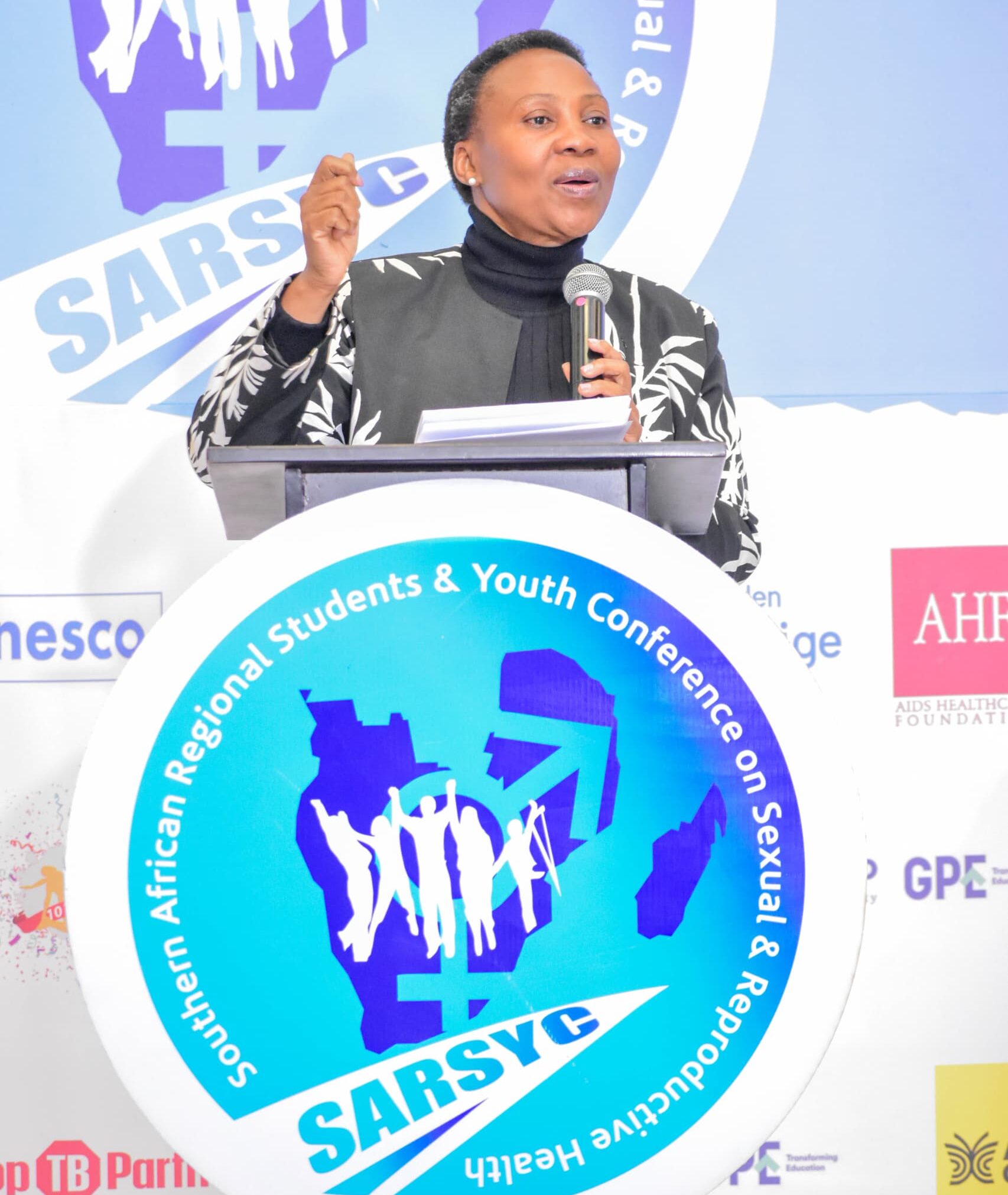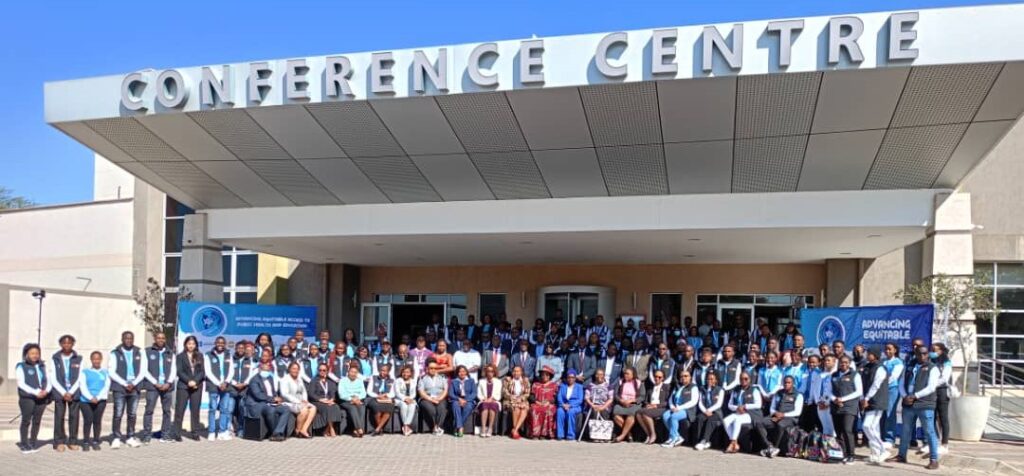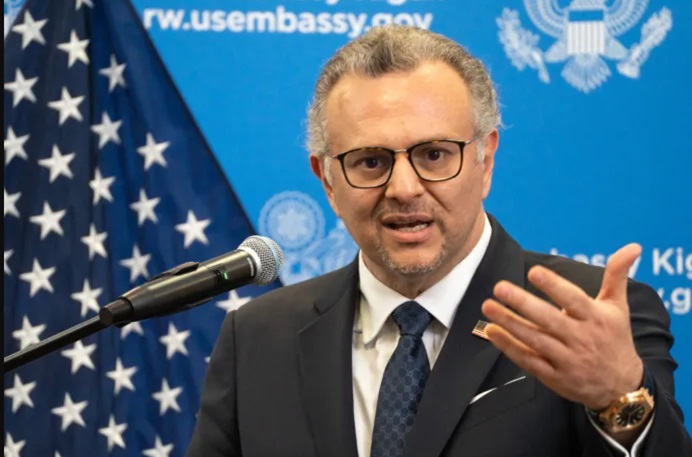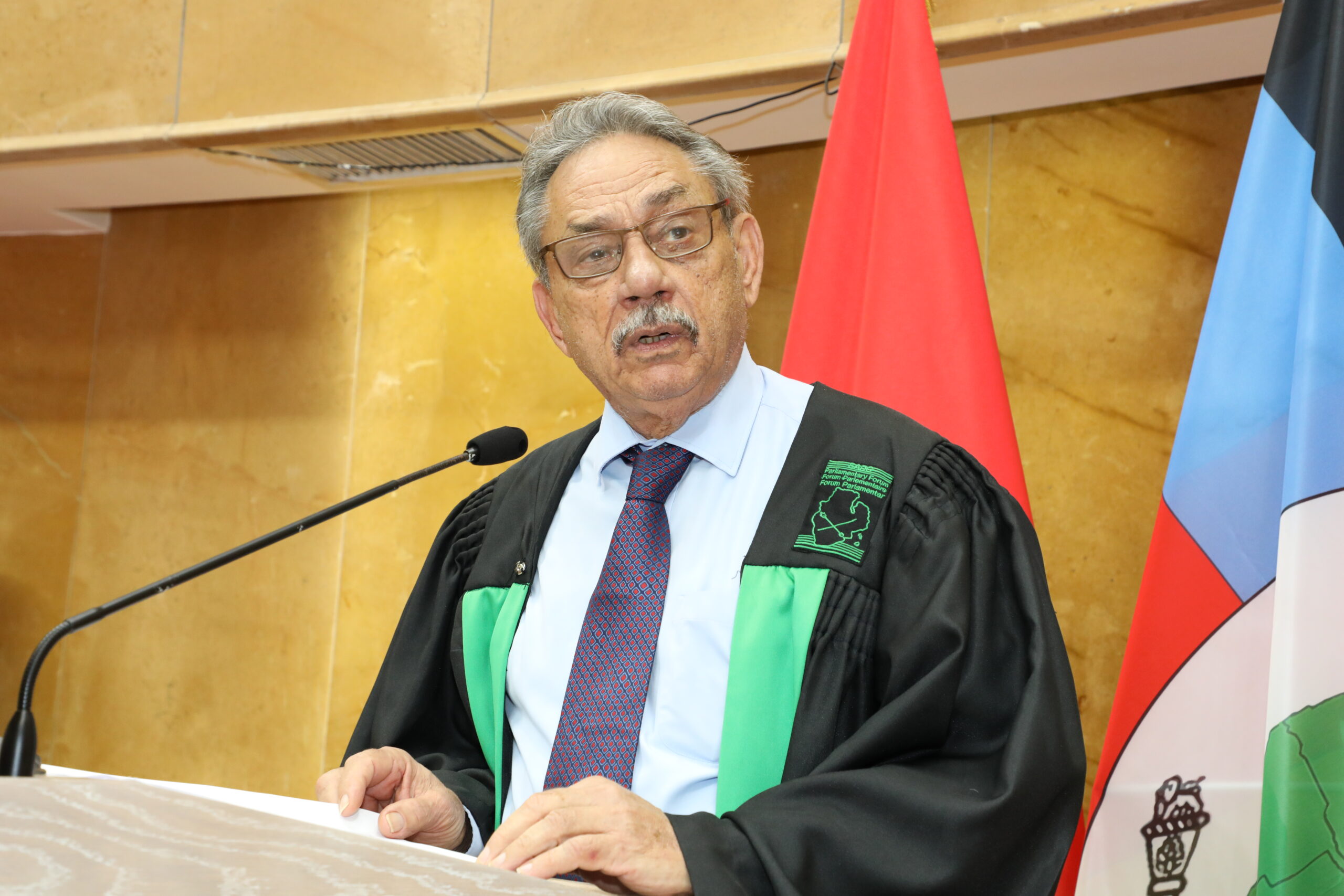
The Secretary General of the SADC Parliamentary Forum, Ms Boemo Sekgoma. Photo: Contributed.
By Moses Magadza in Gaborone, Botswana
The Secretary General of the SADC Parliamentary Forum, Ms Boemo Sekgoma has urged the SADC region to advance on public health initiatives in tandem with the youth, because the youth represent the future generations and they are also the custodians of progress in accelerating public health and education programming.
She made the call on Friday in a keynote address at the fifth edition of the Southern African Regional Students and Youth Conference on Sexual and Reproductive Health (SARSYC V) which ended in Gaborone, Botswana on Friday.

Held under the theme: “Building Bridges, Navigating Issues: Advancing Equitable Access to Public Health and Education” from 17-19 July, the conference brought together students, parliamentarians, civil society organisations as well as other stakeholders to discuss youth education and health issues.
She said because the youth is “here to be heard, to deliver change for the benefit of society, the youth will not agree to half-measures.”
Ms Sekgoma said the youth stands ready to support both the public and private sector to implement healthcare and education initiatives, and in addition, the youth is ready to interact with parliamentarians and discuss openly how initiatives may be improved to promote a healthier state of the democracy and enhancing accountability.
“The Research Indaba has revealed that the youth can reflect on a range of topics including children in conflict in Africa, migration, internal displacements, digital empowerment and use of artificial intelligence, as well as the rise of non-communicable diseases,” she said.
This demonstrates that the youth understand and appreciate the multi-dimensional context of public health, she added.
“Youth participation can also be one of the main drivers in finding tangible solutions to eradicate HIV in the region, eliminate Gender-based violence, child marriage or early and unintended pregnancies – issues that profoundly affect society at large,” she said.
Ms Sekgoma added that the youth want meaningful participation in decision-making processes to ensure that policies are addressed from a multi-sectoral perspective.
“The youth is keen to rely on data-driven policies based on empirical information and this demonstrates their mindfulness about learning and garnering knowledge to improve public health through self-diagnosis, sensitisation, health education, networking or regular check-ups,” she told her audience.
Ms Sekgoma also noted that youth can drive campaigns such as the “Condomise” campaign and participate in networks which promote sexual and reproductive health and rights through gender equality and the elimination of taboos and stigmas.

“We have also learnt that around 35% of the SADC population consists of the youth, which gives the region a demographic advantage for the next decade in supporting a stable and sustainable workforce.
“Youth education, leadership, entrepreneurship and innovation need to remain at the centre stage of reform initiatives to ensure that the expectations for the next decade are met,” she said.
She noted that the SADC-PF places a particular emphasis on public health and the inclusion of the youth in interactions with parliamentarians to enhance public health and education programming.
She said SADC-PF celebrates International Youth Day annually on 12 August, to demonstrate the perennial need to engage the youth at all levels of policymaking and to promote social accountability of the Executive through parliament.
She highlighted that the youth are key stakeholders in consultations on Model Laws developed by the Forum.
“The SADC Model Law on Gender Based Violence and the SADC Model Law on Public Financial Management have been finalised after wide consultations with youth representatives and partners,” she said.
Ms Sekgoma added that the SADC Model Laws also provide for sensitisation and dissemination campaigns to be conducted with youth representatives and for the youth to be engaged on issues such as child marriage, reproductive health, family planning, positive masculinity, among others.
“Various SADC-PF resolutions have entrenched youth-friendly policies to ensure the youth are included at all levels of policymaking and to accept seats in parliaments,” she said.
Ms Sekgoma reiterated that the SADC Model Law on Elections is also a hallmark instrument which characterises the need to encourage the youth, especially women, to participate actively in politics and to stand as candidates during national elections.
She urged the youth to keep their interests in public health reform and in democracy alive.
“Your countries need you to grow as much you need them,” she said.
(C) TPA2024









